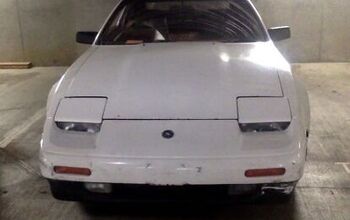E85 Boondoggle Of The Week: Blend Cap Decision Coming This Week
The EPA is set to rule as soon as tomorrow on the so-called “blend cap,” which forbids the sale of gasoline with more than ten percent ethanol. The petition to raise the blend cap came from a relatively new pro-ethanol lobbying group, Growth Energy, which requested the cap be moved to fifteen percent ethanol. Growth Energy’s request cites foreign oil dependence, “green-collar jobs” and the future of cellulosic ethanol as reasons to bump the blend cap, but as the New York Times reports, the real problem is that the ten percent limit is bumping up against a congressional mandate to blend 15b gallons of biofuels with gasoline by 2012. What the Times fails to mention is the financial incentive for raising the blend cap: the 51 cent-per-gallon of ethanol blended tax credit. In 2007, when gas consumption was at an all-time high and ethanol blending mandates required a mere 4.7b gallons (with 7b actually blended), that credit cost taxpayers nearly $3b. In 2012, when the mandate hits 15b gallons, the taxpayer tab will be closer to $7.65b.
More by Edward Niedermeyer
Latest Car Reviews
Read moreLatest Product Reviews
Read moreRecent Comments
- Formula m For the gas versions I like the Honda CRV. Haven’t driven the hybrids yet.
- SCE to AUX All that lift makes for an easy rollover of your $70k truck.
- SCE to AUX My son cross-shopped the RAV4 and Model Y, then bought the Y. To their surprise, they hated the RAV4.
- SCE to AUX I'm already driving the cheap EV (19 Ioniq EV).$30k MSRP in late 2018, $23k after subsidy at lease (no tax hassle)$549/year insurance$40 in electricity to drive 1000 miles/month66k miles, no range lossAffordable 16" tiresVirtually no maintenance expensesHyundai (for example) has dramatically cut prices on their EVs, so you can get a 361-mile Ioniq 6 in the high 30s right now.But ask me if I'd go to the Subaru brand if one was affordable, and the answer is no.
- David Murilee Martin, These Toyota Vans were absolute garbage. As the labor even basic service cost 400% as much as servicing a VW Vanagon or American minivan. A skilled Toyota tech would take about 2.5 hours just to change the air cleaner. Also they also broke often, as they overheated and warped the engine and boiled the automatic transmission...

































Comments
Join the conversation
Again neither the writer of the post nor any of the commenters dare mention Peak Oil. We live in a world of limited liquid fossil fuel resources. Oil is depleting and not being found in quantities large enough to replace usage over time. Not only that, some of our oil suppliers do not like us very much. It is the real reason for 3 costly wars in the last 20 years. It is pure fantasy that we can go on indefinitely like this. Electric cars are a limited solution to the oil problem. Ethanol is only a partial solution, but those who oppose it have no solution. They live in a fantasy world and must not care much if their car centric lives collapse someday.
I long for the days of real gas. Ethanol rotted the carbs of my jetski. It's less hp for my car. The net energy gain is not clear. Why do it ? Oh yes, subsidies. Sorry. Ethanol is for drinking, not your car.